US Expected to Lift Ban on Sale of Offensive Weapons to Saudi Arabia - Report
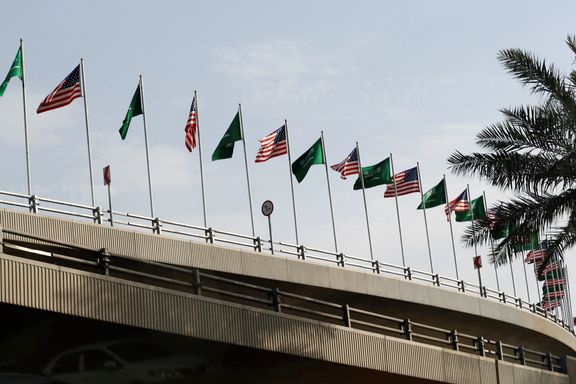
The United States is expected to lift a ban on the sale of offensive weapons to Saudi Arabia, potentially in the coming weeks, the Financial Times reported on Sunday.

The United States is expected to lift a ban on the sale of offensive weapons to Saudi Arabia, potentially in the coming weeks, the Financial Times reported on Sunday.
Washington has already signaled to Saudi Arabia that it was prepared to lift the ban, the newspaper reported, citing a person familiar with the matter.
Soon after taking office in 2021, Biden adopted a tougher stance over Saudi Arabia's campaign against the Iran-aligned Houthis in Yemen, which has inflicted heavy civilian casualties, and over Riyadh's human rights record, in particular the 2018 killing of Washington Post journalist and political opponent Jamal Khashoggi.
Saudi Arabia, the biggest US arms customer, has chafed under those restrictions, which froze the kind of weapons sales that previous US administrations had provided for decades.
US Secretary of State Antony Blinken on Wednesday said the US and Saudi Arabia were very close to concluding a set of agreements on nuclear energy, security and defense cooperation, the bilateral component of a wider normalisation deal with Riyadh and Israel.
However, lifting the ban on offensive weapons sales were not directly linked to these talks, FT said.
The White House and Saudi Arabia’s government communication office did not immediately respond to a Reuters request for comment.
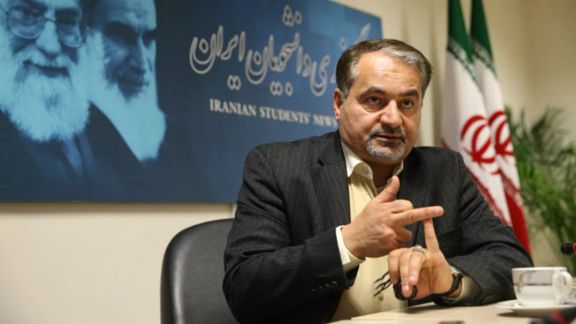
A Berlin-based think tank slammed for hosting a former Iranian ambassador accused of terror ties, has deleted the public announcement of the event after backlash.
The Körber Foundation, founded by a former Nazi, had hosted Princeton academic Hossein Mousavian at a May breakfast event, but after a tide of criticism, the think tank deleted its X post.
Mousavian, who served as Tehran's ambassador to Germany from 1990 to 1997, is accused by activists of having reportedly played a crucial role in the assassinations of at least 24 Iranian dissidents in Europe during the 1990s.
One of the notable incidents was an attack on Berlin restaurant in the 1990s. Four Iranians were assassinated at the Mykonos restaurant by two masked gunmen in a plot sanctioned by the clerical regime’s then-president Rafasanjani, according to a Berlin court.
Lawdan Bazargan who oversees the organization, Alliance Against Islamic Regime of Iran Apologists (AAIRIA), wrote on X, “Deleting your tweet, @KoerberIP does not solve the issue. The fact still remains that you invited Seyed Hossein Mousavian, former ambassador of a brutal gender-apartheid Islamic Regime, who has the blood of many Iranians on his hands, and bragged about it.
Bazargan is leading a campaign to secure Mousavian’s dismissal from his academic job at Princeton University and after having taken a screenshot of the now-deleted Körber Foundation X post, exposed the think tank for hosting the controversial figure linked to the highest echelons of Iran's government.
Körber embedded four photographs of people at the breakfast, including pictures from Mousavian.
Shortly before Körber scrubbed its X post of the Mousavian event, Bazargan wrote “Shame on you @KoerberIP for meeting with Mousavian who at least has the blood of 24 Iranians on his hand. Fire Mousavian.”
The British-American actress and opponent of the clerical government in Tehran, Nazanin Boniadi, posted on X for her over 591,000 followers about the Körber event: “Mousavian was the Islamic Republic’s ambassador to Germany from 1990-97, during which time beloved Iranian dissident Fereydoun Farrokhzad was murdered in Bonn, and Kurdish-Iranian opposition leaders were assassinated in Berlin. Stop platforming him.”
When asked why Körber deleted the X post and for a copy of Mousavian’s talk, Julian Claaßen, a spokesman for Körber, told Iran International, “Dr. Hossein Mousavian was invited to background discussions at Körber-Stiftung in Berlin and Hamburg. Since its inception, Körber-Stiftung has been committed to dialogue, in line with the motto of our founder Kurt A. Körber ‘Talking to each other, not about each other’. Our aim is to explore the scope for political action and to contribute to international understanding, especially in times of acute crisis and conflict.”
Claaßen said discussions take place within Chatham House Rules, meaning the content and statements of individual participants are not disclosed. However, he added, “The discussions last Thursday and Friday centred on Iran's role in regional politics and domestic political developments in the Islamic Republic," claiming that he was also interviewed by staff for the in-house magazine, ‘The Berlin Pulse Express Edition’, which will be published next week.
When pressed about Mousavian’s alleged role in assassinations, his endorsement of the fatwa to murder the British writer Salman Rushdie and his support of the German-designated terror organizations, Hamas and Hezbollah, Claaßen said “we do not comment on political statements made by our guests.” The Körber spokesman also refused to comment on Mousavian’s alleged antisemitism, Mousavian having compared Israel with Nazi Germany on X.
According to the German government’s definition of antisemitism---based on the International Holocaust Remembrance Alliance concept of modern Jew-hatred—Mousavian expressed an antisemitic comparison.
Bazargan told Iran International that “Körber must apologize and change its policy toward the Iranian regime, and start supporting the Woman-Life-Freedom movement led by the youth in Iran. Several Iranians who were shot with pellet bullets and lost their eyes or hands in the recent uprising in Iran are now living in Germany. Körber should invite them and amplify their stories to highlight the true impact of the regime's brutality.”
The think tank was founded by Kurt A. Körber, a member of the Nazi party who worked for Universelle-Werke J. C. Müller & Co. which advanced Hitler’s war goals.
According to the Köber Foundation website, “Up to 3,000 foreign and forced laborers were used for this purpose…He is actively involved in the company’s armaments production.”
Iran International reported in March that Dr. Narges Eskandari, the mayor of Frankfurt in Germany, and a former Iranian political prisoner, said “Seyed Hossein Mousavian, Iran's ambassador at the time, is considered one of the key masterminds behind the attack. He had prior knowledge of the assassination attempt, and evidence implicates the Iranian embassy in the attack. To date, there have been no consequences for Seyed Hossein Mousavian. “
Mousavian is a Middle East Security and Nuclear Policy Specialist in the Program on Science and Global Security at Princeton University where he has been employed since 2009.
In April, over 70 Iranian-Americans, including the Germany-based Parviz Dastmalchi, a survivor of the 1992 Mykonos terrorist attack in Berlin, demonstrated at Princeton against Mousavian. The pro-Iran regime academic lashed out at the dissidents on X for calling on Princeton to fire him.
Körber has hosted Mousavian frequently over the years, including in 2018 and 2017.
Mousavian declined to respond to numerous Iran International requests for comment.
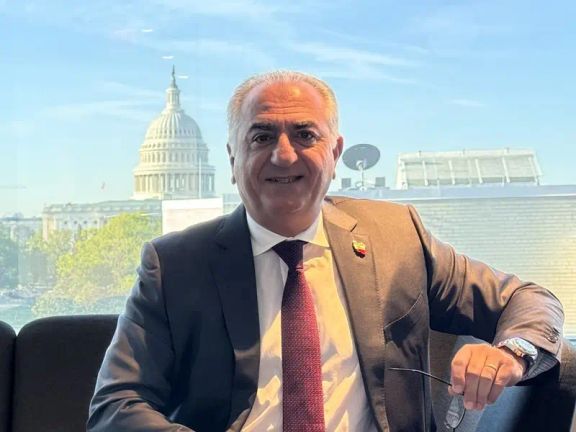
Iran's exiled Crown Prince issued a call for British and Western governments to protect their citizens from “violence perpetrated by supporters of the Iranian regime" after the latest attack in London.
Iranians in the UK, demonstrating against a memorial service for the late president Ebrahim Raisi on Friday were targeted by possible Iranian state agents, resulting in injuries to four people, as reported by the Metropolitan Police who confirmed the arrest of one suspect.
Prince Reza Pahlavi said, "What happened in London on Friday must not happen again," the latest in a string of incidents against dissidents in the UK since 2022.
Journalist and political activist Masih Alinejad who has also been the target of Iranian death threats through government agents in the UK and US, said the British authorities must act against the "thugs of the Islamic Republic."
In a show of defiance, Iranians in the UK rallied the following day in front of Iran's embassy in London to protest the violence. Pahlavi said, "Your coming together at this short notice to defend our compatriots is commendable," Pahlavi stated.
In March, Iran International host Pouria Zeraati, was stabbed by unknown attackers outside his home in London, suspected to be Iranian agents. In November 2022, threats were made against two of the channel's London-based journalists before the offices were forced to close temporarily last year after UK security services, MI5, said it could no longer guarantee the safety of Iran International staff.
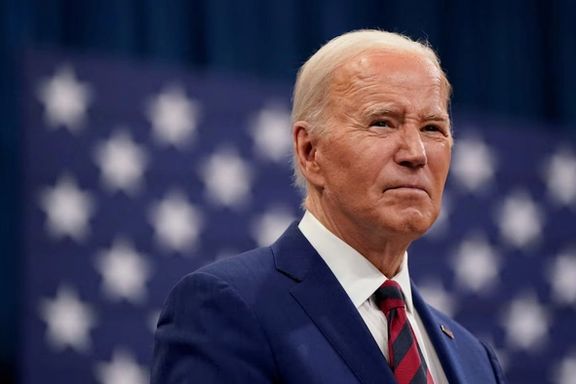
During a commencement speech at the US Military Academy in New York, President Joe Biden, praised American forces for their role in intercepting the Iranian drone and missile attack aimed at Israel.
“Ninety-nine percent of the missiles, drones,” Biden highlighted, never reached their targets “because of the quality of our forces.”
Biden was referring to the unprecedented attack of April 13 when Iran initiated an unprecedented offensive from its territory against Israel, deploying over 350 killer drones, cruise missiles, and ballistic missiles. In response, a coalition of jets from the US, UK, France, and Jordan effectively formed a defensive barrier, thwarting the Iranian offensive.
“Thanks to the US Armed Forces, we’re doing what only America can do as the indispensable nation, the world’s only superpower,” Biden stated.
US Central Command (CENTCOM) detailed that US forces neutralized over 80 one-way attack drones, accounting for 47% of the drones launched by Iran. This marked the first-ever direct attack from Iranian soil on Israel, an action that shifted global attention from the ongoing Gaza conflict towards Iran, rallying international support for Israel and sparking widespread condemnation of Iran.
The attack was an alleged retaliation to an Israeli air strike on the Iranian consulate in Syria. Following the Iranian bombardment, Israel conducted a precise counterstrike aimed at preventing further escalation into a full-scale conflict. This included targeting and destroying a component of the S-300 air defense system at the Isfahan base, a fact revealed through satellite imagery analysis.
Iran, seemingly cautious of igniting a larger regional conflict, played down the damage inflicted on its airbase and declared it would not pursue further retaliation.

The candlelight ceremony planned for Ebrahim Raisi and his companions in front of the Iranian embassy in London on Saturday was canceled due to a gathering of Iranian protesters celebrating Raisi's death.
The cancellation came just one day after Islamic Republic loyalists attacked Iranian protesters in London.
Celebrating the demise of Raisi, outside the embassy on Saturday, protestors chanted "Death to Khamenei, Curse Raisi" and displayed a balloon shaped like a helicopter, symbolizing Raisi's helicopter crash as they danced.
This demonstration was a direct response to the violence from the previous day when supporters of the Islamic Republic attacked anti-government protesters.
Following the attack on Friday, a spokesperson for the London Metropolitan Police confirmed the incident to Iran International. During the attack, four people were injured and one person was arrested, although the identity of the arrested individual had not been disclosed. The police said they are investigating the incident, reviewing videos from social media, and urging the public to provide any additional footage or information.
Eli Borhan, an opposition activist injured during the attack, stated that her mobile phone was stolen by the attackers and later accessed within the Iranian embassy in London.
Meanwhile, another protestor was hospitalized due to a serious spinal injury as a result of being attacked.
The attack sparked a wave of reactions from political activists and opposition figures. Prince Reza Pahlavi condemned the violence, noting that Iranian protesters face threats both at home and abroad. He called for the arrest and trial of those responsible for the attack.
Prominent activist Masih Alinejad criticized the British government for its negligence regarding the Islamic Republic, urging the authorities to take decisive action against such attacks.
Actress and human rights activist Nazanin Bonyadi echoed these sentiments, stressing the need for a thorough investigation by London police and for the perpetrators to be held accountable for the attack.
This attack was not an isolated incident and part of a broader issue of Islamic Republic loyalists' aggression on Iranian dissidents.
Despite the cancellation of the candlelight ceremony in London, similar events continue to occur elsewhere. The Islamic Education Center in Maryland in Michigan held a memorial service for Raisi earlier this week, claiming that it was in solidarity with the people of Iran and supporters of global peace and justice. Meanwhile, Islamic Republic loyalists who went to the ceremony threatened Iranian protestors outside the center with death.
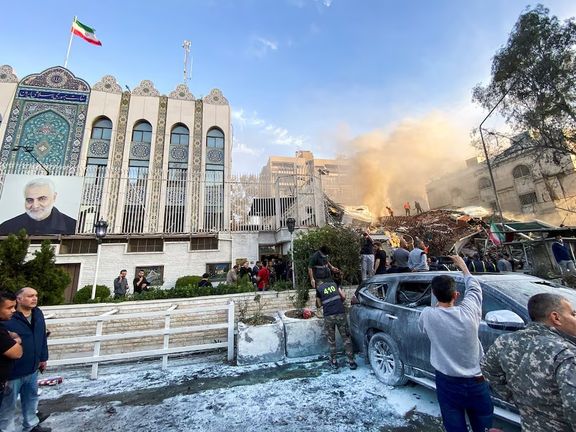
An explosion in the al-Maza neighborhood of Damascus, which houses the Iranian embassy, has reportedly resulted in at least one death.
The Jerusalem Post citing Syrian sources said the incident occurred early Saturday morning and has escalated tensions in an area already fraught with conflict.
The identity of the dead, a man "close to Iran," has not been disclosed. The explosion follows a series of targeted attacks in the same district, including an air strike last month attributed to Israeli forces.
That attack killed several senior members of Iran's Revolutionary Guards, including senior commander Mohammad Reza Zahedi, intensifying the ongoing shadow war between Israel and Iran in the region.
In retaliation, Iran executed a direct assault on Israel on April 13, launching hundred of drones and missiles, marking an escalation in their confrontations.
However, Israel in turn retaliated with a precision strike on a military base in Isfahan, central Iran.
Reports indicate that shortly before Zahedi’s assassination, the Iranian diplomatic residences were about to be relocated to a new apartment complex on the same street. The move was cancelled at the last minute during a meeting of the senior echelons of the Revolutionary Guards, who chose to remain in the consul building.
Iran's participation in the Syrian civil war, backing President Bashar al-Assad since its onset over a decade ago, has sparked disputes with Israel. Perceiving Iranian forces in Syria as an imminent threat, Israel has regularly targeted their bases and arms depots starting in 2017.